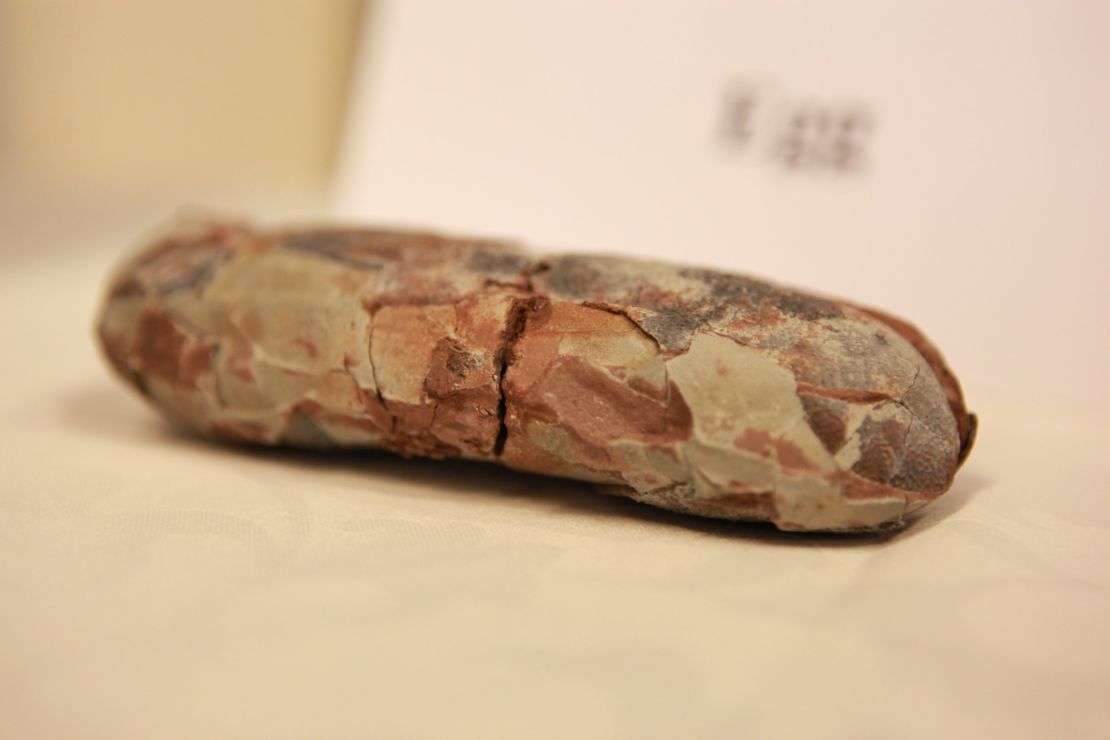Story highlights
Over 18 dinosaur skeletons illegally smuggled to U.S. returned to Mongolian official
Skeletons were recovered from commercial paleontologist, Eric Prokopi
Recovery made by HSI and ICE is unprecedented, said U.S. Attorney Bharara
Prokopi was sentenced to three months in jail for smuggling and other charges
Dinosaur skeletons illegally smuggled in to the United States have been turned over to the Mongolian government in a repatriation ceremony Thursday.
U.S. authorities officially turned over 18 dinosaur skeletons – including a “nearly complete” Tyrannosaurs Bataar, Saurolophus Angustirostris, and an Oviraptor, a fossilized egg and a “grave yard” containing the remains of at least five dinosaurs.
During the ceremony, U .S. Attorney Preet Bharara and James T. Hayes, Jr., Special Agent in Charge at the U.S. Immigration and Customs Enforcement (ICE) returned the historic items to Od Och, Mongolia’s Permanent Representative to the United Nations.
“A recovery of this sort is really without precedent,” said Bharara. “This is a historic event for the U.S. Attorney’s office as well as a prehistoric event.”
On display, was a multicolored egg that looks much like a rock, a large rock containing the remains of multiple Oviraptors, and another rock with two well preserved Gallimimus.

The looted fossils are 68 to 80 million years old and originated from the Gobi Desert of Mongolia, which had much more water at the time, said paleontologist Mark Norell during the ceremony.
The bones were disassembled into many pieces before being smuggled through customs between 2005 and 2012, said Hayes.
The Department of Homeland Security Investigations seized the skeletons from a commercial paleontologist, Eric Prokopi, who pleaded guilty in 2012 to smuggling and other charges.
Prokopi had a “vast inventory” of historical items in a number of locations under his control, said Hayes.
In June, Prokopi was sentenced to three months in jail and one year and three months supervised release on charges related to smuggling, conspiracy, and sale or receipt of stolen goods, according to ICE.
Under Mongolian law, dinosaur fossils are property of the Mongolian government and exporting them from the country is a criminal offense.
Och expressed his appreciation to the U.S. attorney and the agencies involved in the recovery.
“This can be seen as best practice of international cooperation to fight organized crime,” Och said.
The skeletons returned to the Mongolian government are very important, said Norell. “They are extraordinarily rare.”
Prokopi was also at the center of a 2013 investigation that led to the recovery and reparation of a “nearly complete” skeleton of a Tyrannosaurus bataar to the Mongolian government. Bharara and ICE turned over a skeleton standing 8 feet tall and stretching 24 feet in length after it was illegally smuggled and changed hands several times, including being sold at auction.
“The fossils returned today do not belong in the hands of any private collection or one owner,” said Hayes. “They belong to the people of Mongolia where they will be displayed in their national museum alongside the Bataar ICS repatriated last year.”
As heavy as 14 elephants, as long as 2 tractor trailers: Meet the titanosaur
Scientists discover what may be the biggest bird ever to fly
